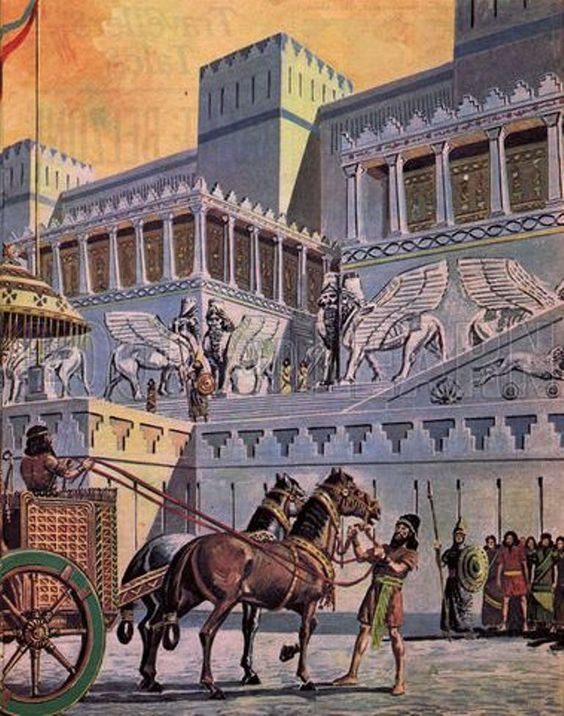At Sinai. God graciously granted both Moses and Aaron new revelation during Israel's encampment at Sinai.
First, they were granted an unparalleled privilege. Moses and Aaron were allowed to enter into God's holy presence on Sinai ( Exod 19:24 ; 24:9-10 ).
Second, Aaron and Moses were leader-participants in the covenant Yahweh made between himself and the people of Israel.
Third, Yahweh delivered specific instructions to Aaron and Moses at Sinai about how they were to lead Israel to become his holy nation and kingdom of priests.
The Break in Loyalty. Aaron was directly responsible for a grave offense against God when Moses was on Mount Sinai receiving the written law of Israel ( Exod 32:1-10 ). He gave in to the demands of the people, collecting the necessary materials and supervising the making of a golden calf. He then told the people, "These are your gods, O Israel, who brought you up out of Egypt." Aaron then set up an altar and proceeded to lead the people in worshiping the calf.
Aaron acted against what he knew God wanted. Perhaps he had not completely detached himself from the Apis-bull worship of Egypt or from some insidious feature of Baal worship present in Egypt. In spite of his sin, Aaron was restored to his position of high priest. This is a most remarkable incident demonstrating the grace and compassion of God.
High Priest of God Most High. Aaron was duly attired and dedicated as God's priest (Lev 8-9). He ministered before Yahweh, whose presence-cloud dwelt above the mercy seat over the ark of the covenant in the Most Holy Place of the tabernacle ( Exod 40:38 ).Aaron was chief as he ministered with other priests in presenting offerings and sacrifices to Yahweh for himself and for the people of Israel. He was an intercessor and mediator before Yahweh among his people. His priestly vestments, especially the ephod and breastplate adorned with precious stones inscribed with the names of the tribes, emphasized in a special way this ministry before God on behalf of the people.








